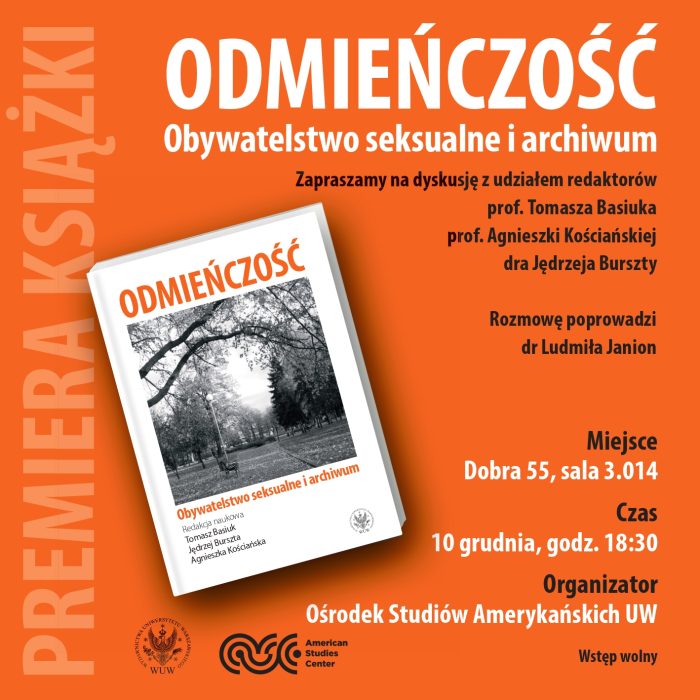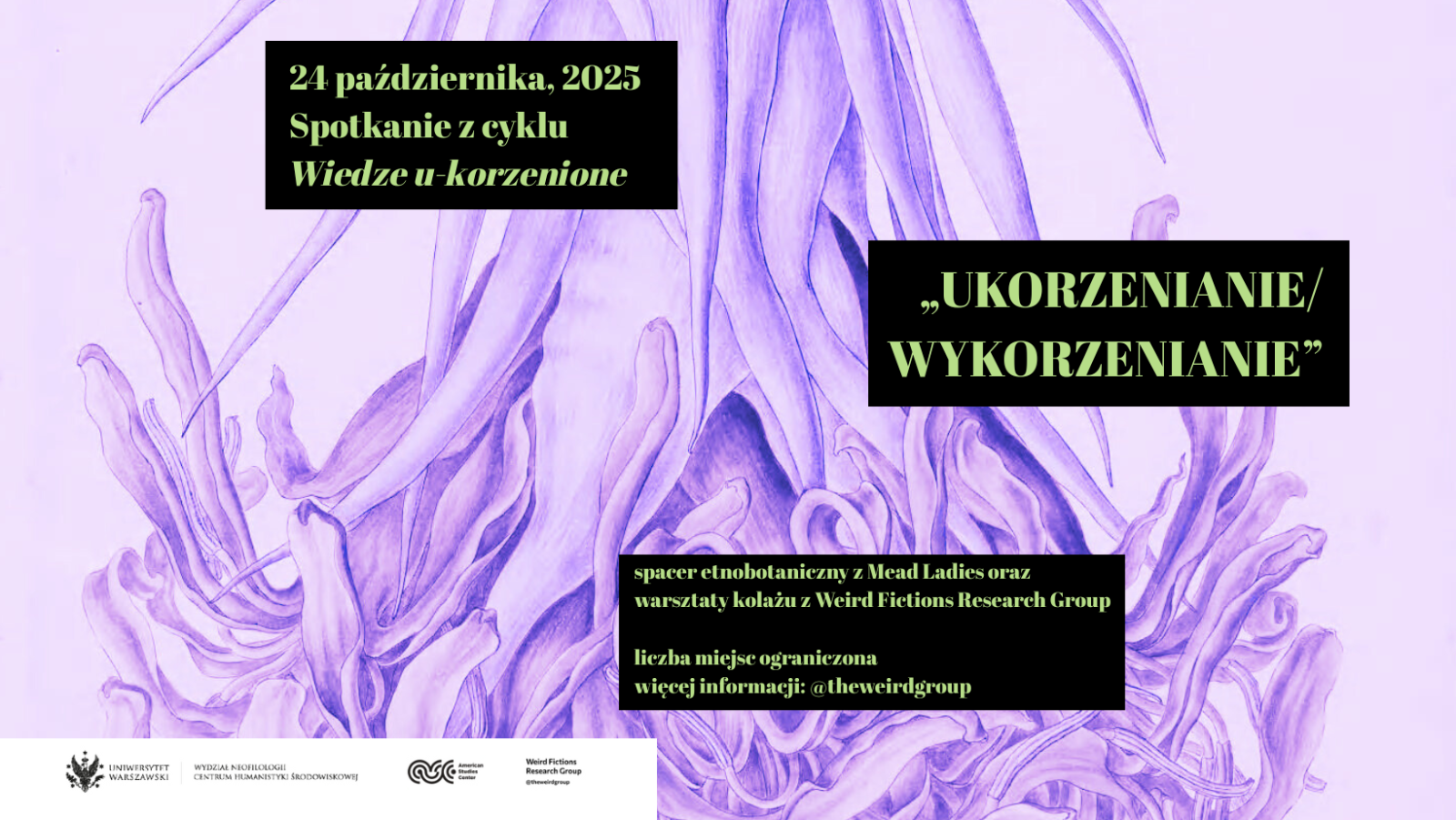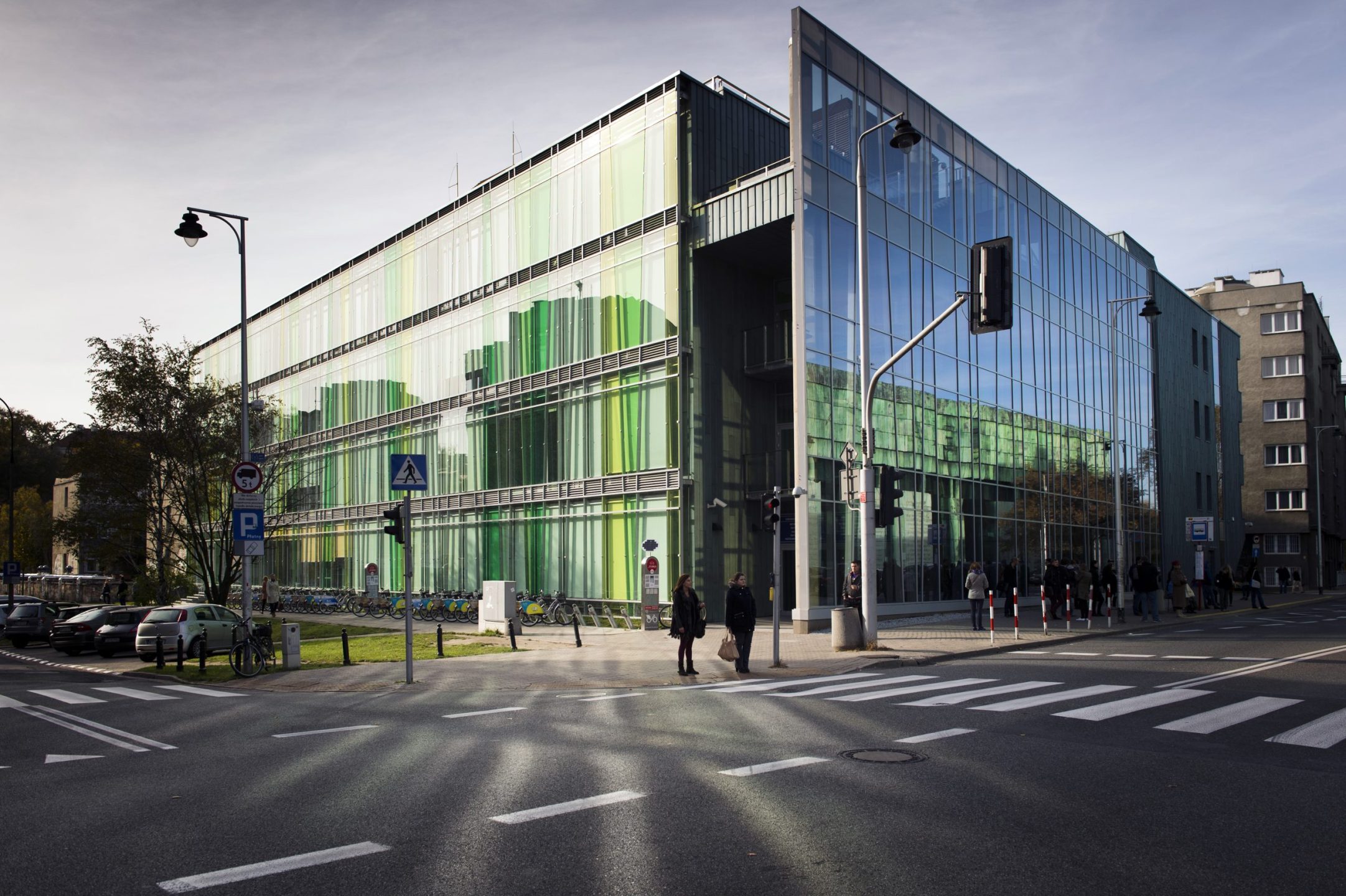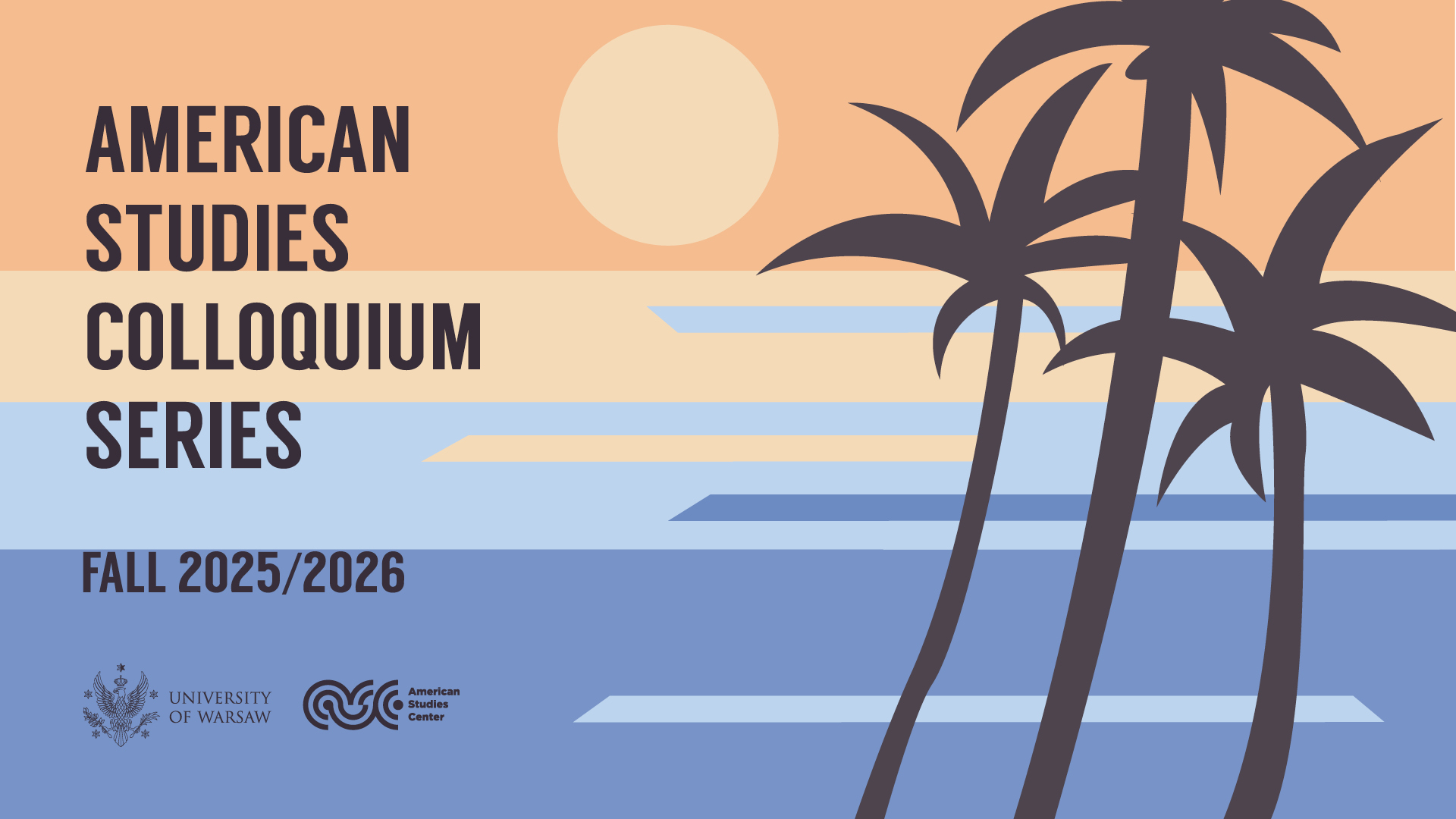Zapraszamy na dyskusję z udziałem prof. Tomasza Basiuka, prof. Agnieszki Kościańskiej i dra Jędrzeja Burszty, redaktorów książki “Odmieńczość: obywatelstwo seksualne i archiwum”, która ukaże się nakładem Wydawnictw Uniwersytetu Warszawskiego. Rozmowę poprowadzi dr Ludmiła Janion.
10 grudnia, godz. 18:30
Za udział w spotkaniu można uzyskać 3 punkty OZN.

Gdzie?
Dobra 55, sala 3.014
Co?
Opowieść o historii tożsamości homoseksualnej w Polsce i w innych krajach bloku wschodniego zwykle zaczyna się w późnych latach 80. XX w. – to wtedy powstały pierwsze pisma skierowane do osób nieheteronormatywnych i (nieformalne) organizacje walczące o ich prawa. Autorzy i autorki tej książki zastanawiają się, co było wcześniej – badają życie codzienne, dyskursy eksperckie, literaturę, sztukę i sieci społeczne. Zestawiają to, co działo się w Polsce, z przykładami z obu stron żelaznej kurtyny. W poszukiwaniach przejawów emancypacji osób LGBTQ+, a także mechanizmów ją utrudniających pomaga im koncepcja obywatelstwa seksualnego oparta na szerokiej definicji obywatelstwa jako przynależności kulturowej, tożsamościowej i pełni praw.
Kto?
Agnieszka Kościańska, prof. dr hab., pracuje w Instytucie Etnologii i Antropologii Kulturowej UW, autorka m.in. Płeć, przyjemność i przemoc. Kształtowanie wiedzy eksperckiej o seksualności w Polsce (WUW, 2014, wyd. ang. Indiana UP 2021), Zobaczyć łosia. Historia polskiej edukacji seksualnej od pierwszej lekcji do internetu (Czarne, 2017, wyd. ang. Berghahn Books, 2021), Odejdź. Rzecz o polskim rasizmie (wspólnie z Michałem Petrykim, Wydawnictwo Krytyki Politycznej, 2022) oraz wywiadu-rzeki z edukatorem seksualnym Wiesławem Sokolukiem pt. Instruktaż nadmierny (Czarne, 2018). Redaktorka tomów o płci i seksualności, m.in. Antropologia seksualności (WUW, 2012). Stypendystka m.in. Marie Curie Fellowship (Uniwersytet Harvarda), Imre Kertész Kolleg Jena oraz Royal Society of Edinburgh (Edinburgh College of Art), w latach 2021–2022 Leverhulme Visiting Professor w Oxford School of Global and Area Studies. Członkini zespołu CRUSEV.
Tomasz Basiuk, dr hab., prof. UW, wykłada w Ośrodku Studiów Amerykańskich UW. Zajmuje się współczesną prozą amerykańską, życiopisaniem i tematyką queerową. Jest autorem monografii autorskich: William Gaddis. Realista postmodernistyczny (Świat Literacki, 2003) i Exposures: American Gay Men’s Life Writing since Stonewall (Peter Lang, 2013), licznych artykułów naukowych i rozdziałów oraz współredaktorem tomów zbiorowych. W 2006 roku współzałożył i nadal współredaguje rocznik „InterAlia: pismo poświęcone studiom queer”. Wykładał gościnnie w USA, Niemczech, Szwajcarii, Włoszech i Hiszpanii. Kierownik projektów „CRUSEV: Crusing the Seventies” (2016–2019) i “QUEERIT: Queer Theory in Transit” (2023–2026).
Jędrzej Burszta – doktor nauk humanistycznych w zakresie kulturoznawstwa, etnograf, amerykanista. Adiunkt w Ośrodku Studiów Amerykańskich UW. Jego zainteresowania badawcze obejmują etnografię pamięci, teorię queer, badania nad amerykańską kulturą popularną i alternatywną. W latach 2017–2019 realizował badania etnograficzne w ramach międzynarodowego projektu badawczego „CRUSEV: Cruising the Seventies”. Ostatnio współredagował razem z Tomaszem Basiukiem książkę Queers in State Socialism: Cruising 1970s Poland (Routledge, 2021). Kierownik projektu „Kultura psychodeliczna w Polsce: praktyki i dyskursy” (2024–2026). Autor powieści i tekstów teatralnych.



